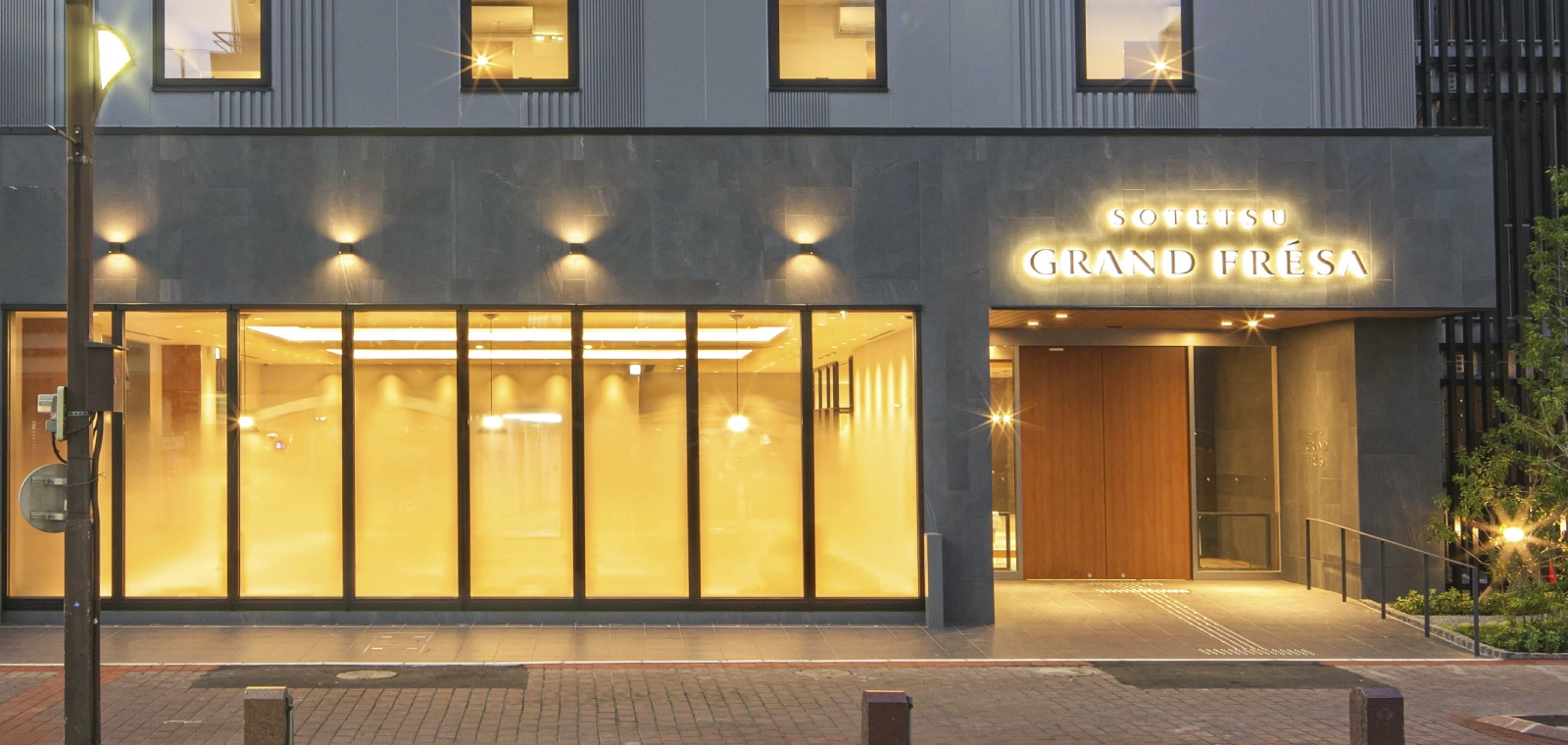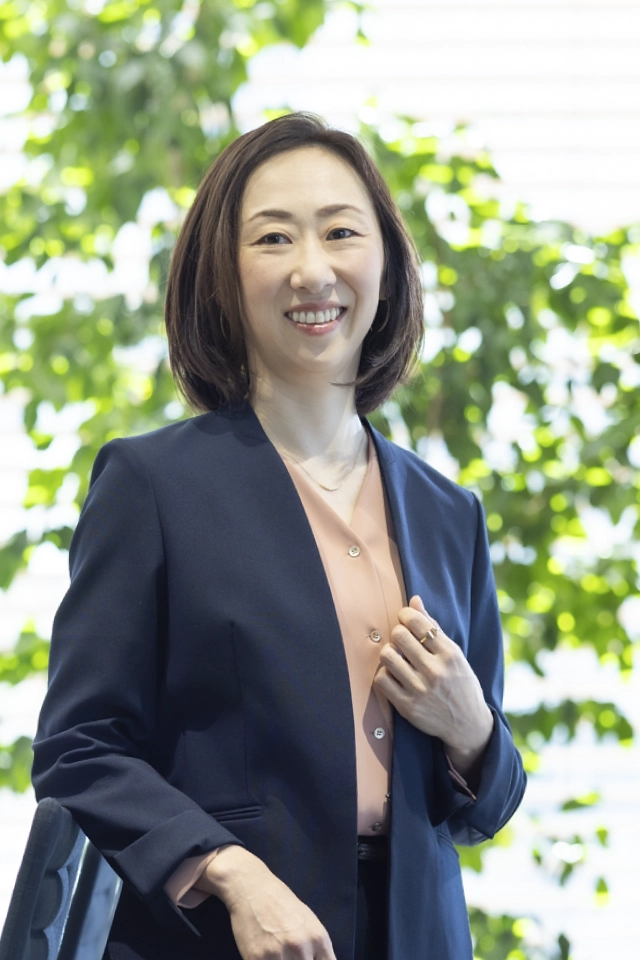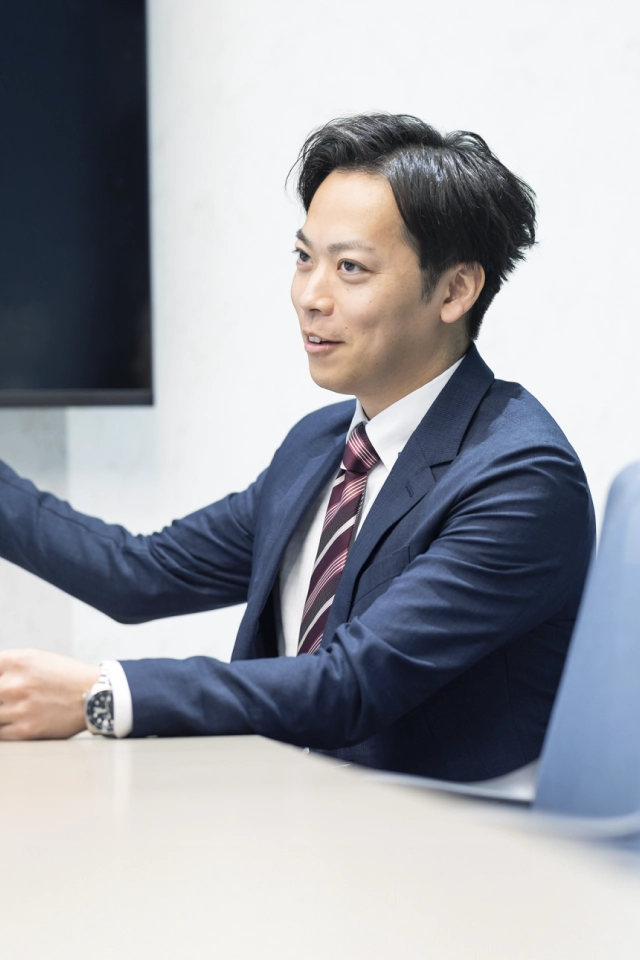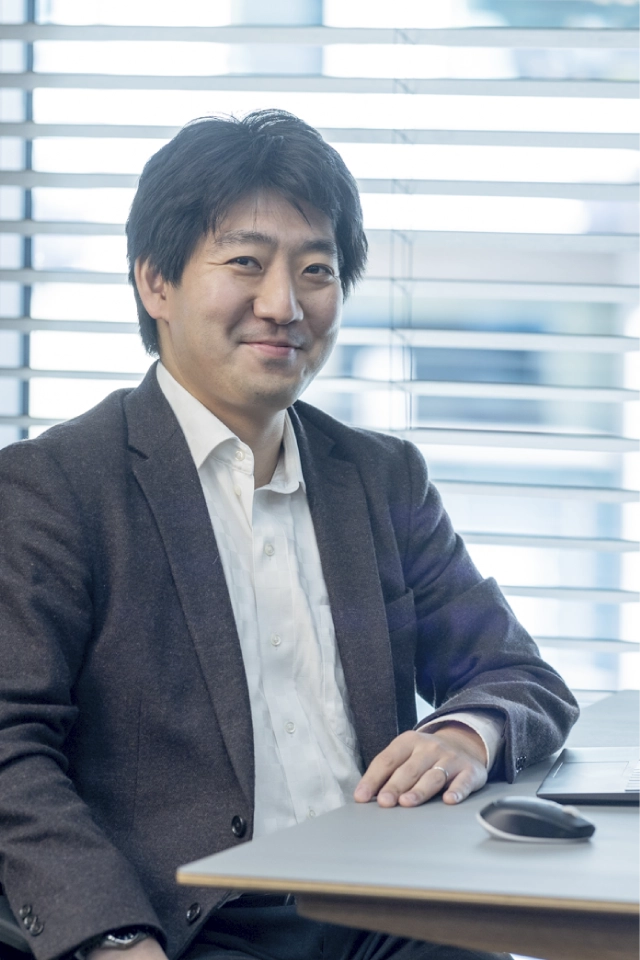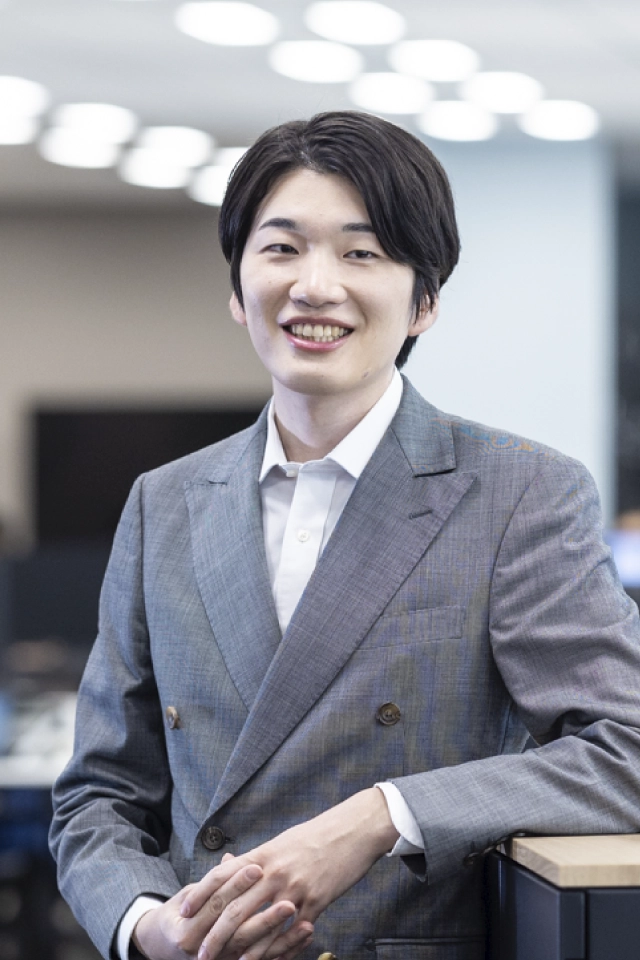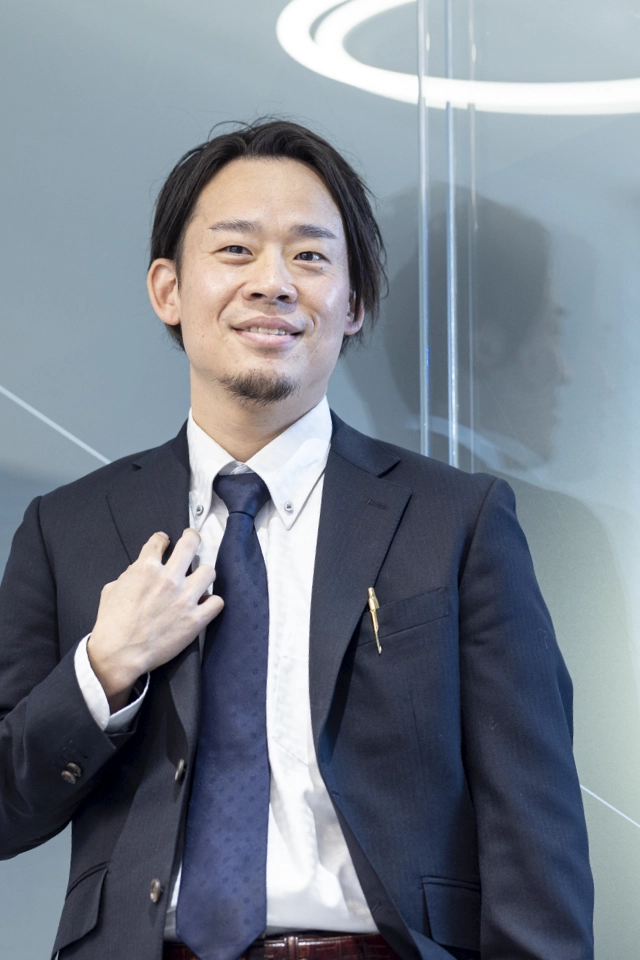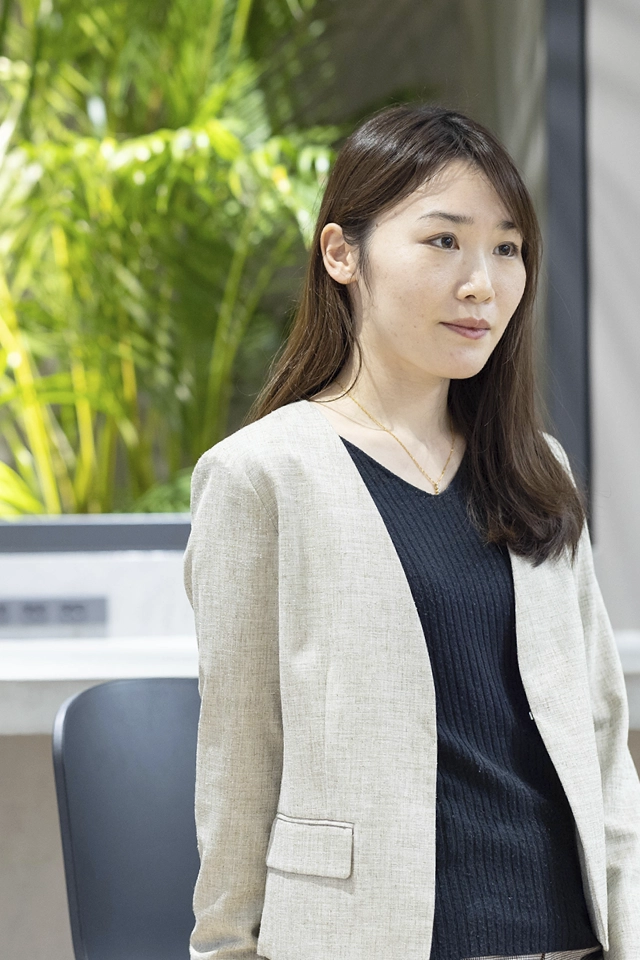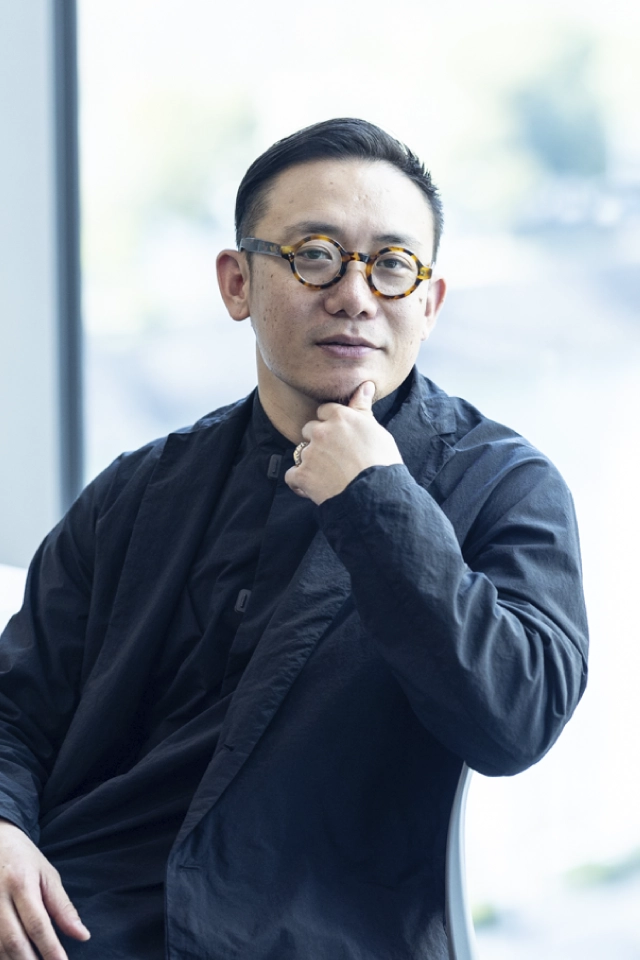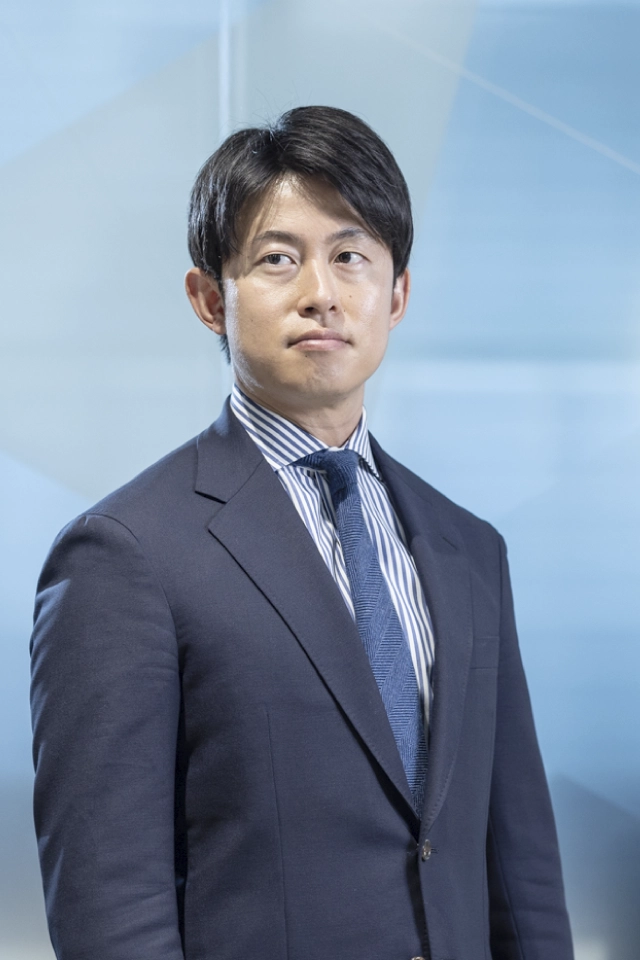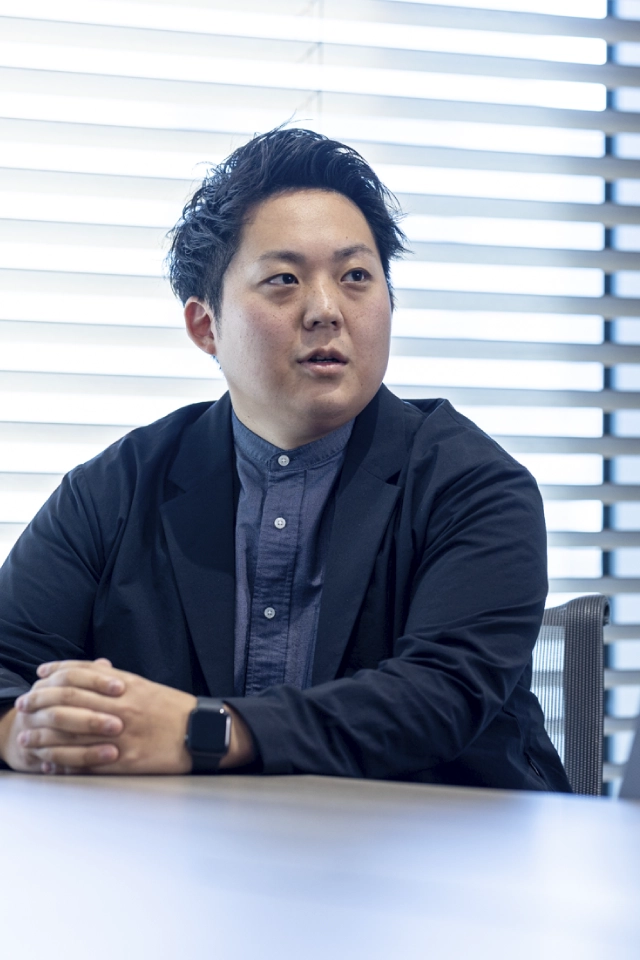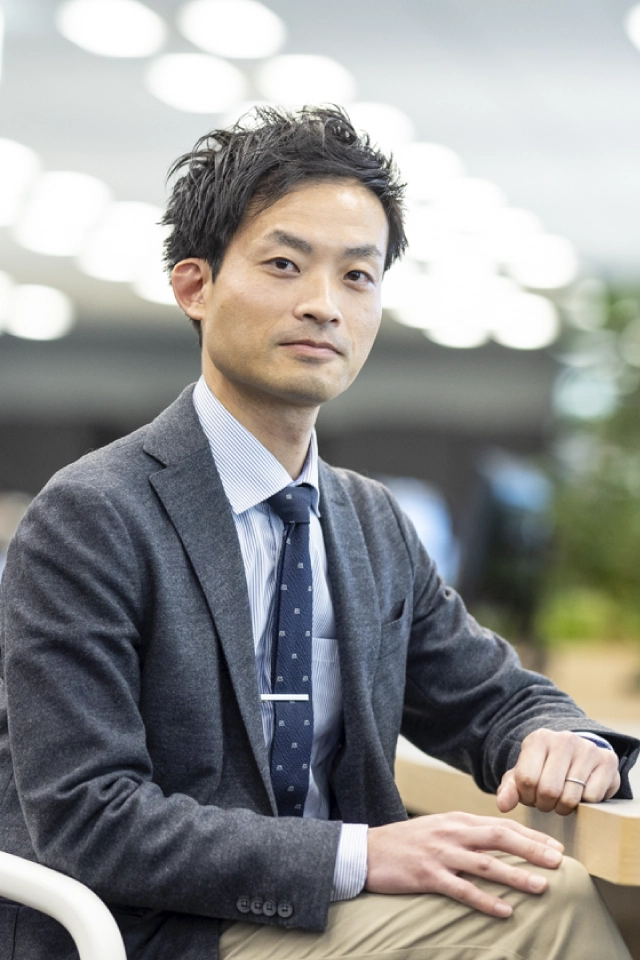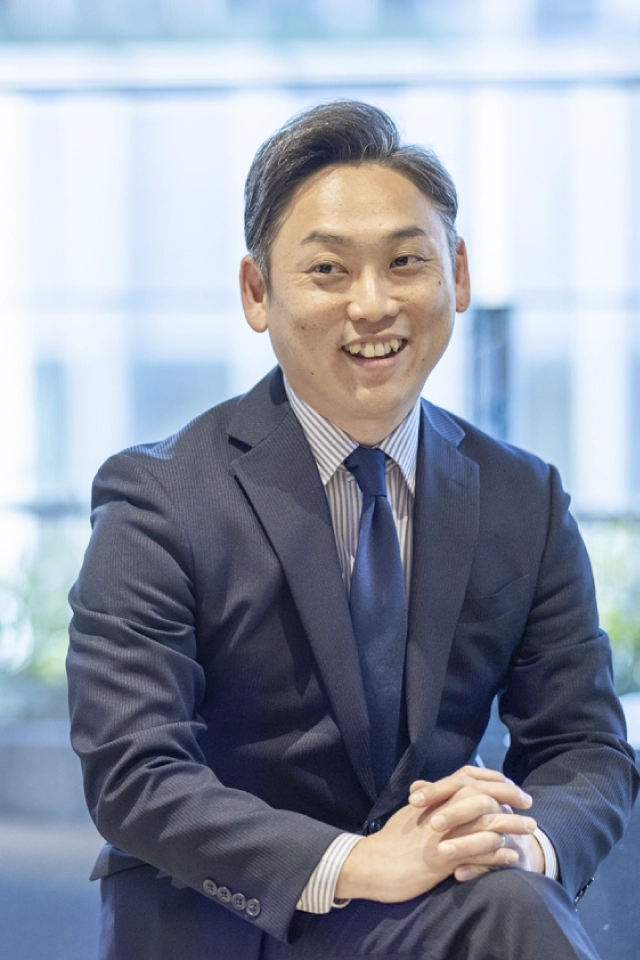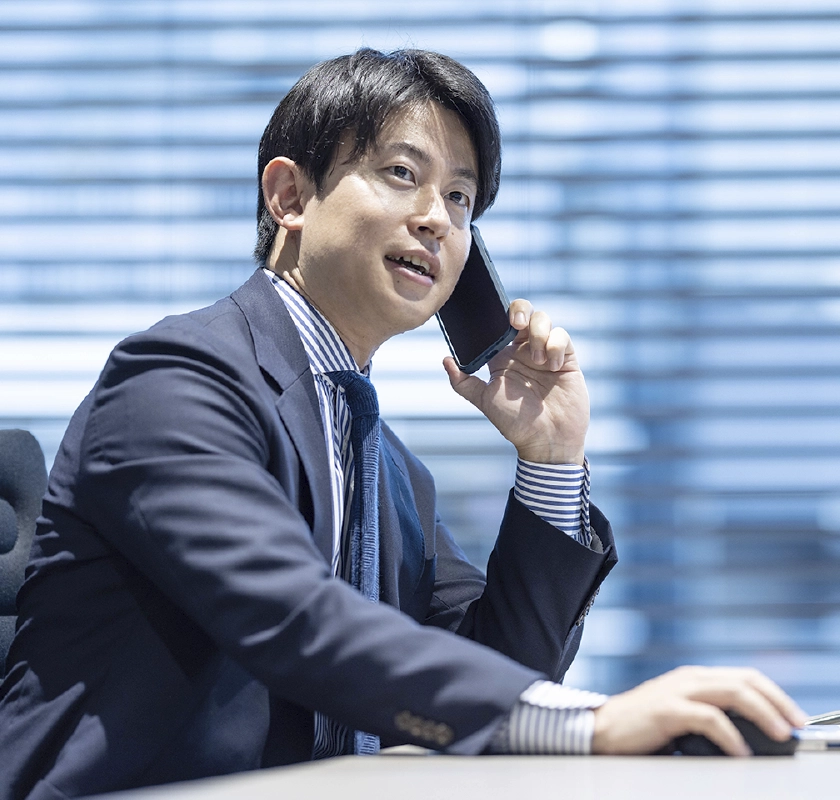
- Creation of business opportunities derived from a broad range of insight and expertise.
- In my previous job, I worked at a condominium developer, particularly in model room sales and acquiring land for condominium development. My motivation for joining Mitsubishi Corporation Urban Development was not only the opportunity to work on developing new asset classes such as commercial and logistics facilities, but also seeing the potential for growth in the company due to the fact that, despite having a shorter history as a developer than the competition, it had the strong capital and networks of a general trading company.
I currently hold positions in both Project Planning Dept. II and Project Management Dept. II, handling everything from land acquisition to development promotion, leasing, and property sales. Another factor I find rewarding is the bottom-up corporate culture - for example, the ability to explore a wide range of business opportunities without being limited to specific asset classes in land acquisition, and having my problem-solving proposals directly reflected in development promotion. Being responsible for all stages of development work and being able to work across various asset classes broadens my scope as a developer and enhances my personal growth. The company has also grown significantly since I joined, and I feel that I have played a part in that growth.
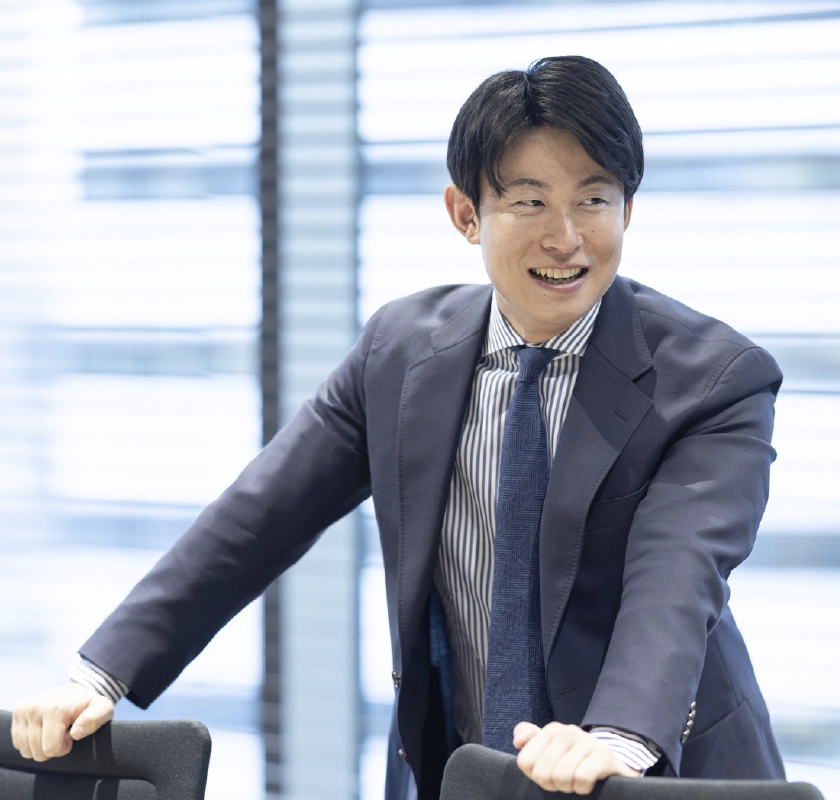
- Experience gained from the tumult of a hotel development project directly hit by the COVID-19 pandemic.
- A hotel development in Kumamoto was my first project as a project manager, and I was involved in everything from land acquisition, project promotion, and leasing to property sales, making it a memorable project filled with twists and turns before its completion. Shortly after acquiring the land, the COVID-19 pandemic struck, and even our parent company, Mitsubishi Corporation, expressed concerns, asking if continuing the hotel project under such circumstances would be a major risk. Inbound tourism has since recovered, and the hotel business is once again in the limelight, but at that time, no one could foresee the future and there were no precedents, which meant it was extremely difficult to decide whether to continue with the project. After about half a year of discussions and evaluating different risks and emergency damage control methods from all angles, we managed to make the decision to press ahead with the project. Later, as the design work moved forward and the building was nearly complete, several manufacturing plants, including those from international companies, began deciding to set up in the town of Kikuyo in Kumamoto. Kumamoto was buzzing with new energy, and the market transformed into one where future upside were readily apparent, providing a tailwind for property sales.
I clearly remember facing headwinds in the project, but the fact that we were able to complete the project without giving up was all thanks to the cooperation of the project members and stakeholders, and I am grateful for the experiences I had. The project involved a large number of people over a long period, so the ability to make allies both inside and outside the company, to gain cooperation, and to consolidate different opinions were vital teamwork skills that I was able to learn. I plan to use this experience to keep experiencing significant growth in the future.

